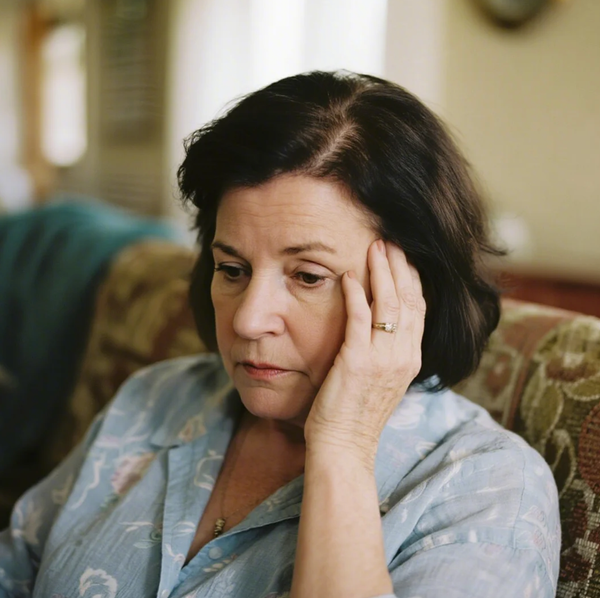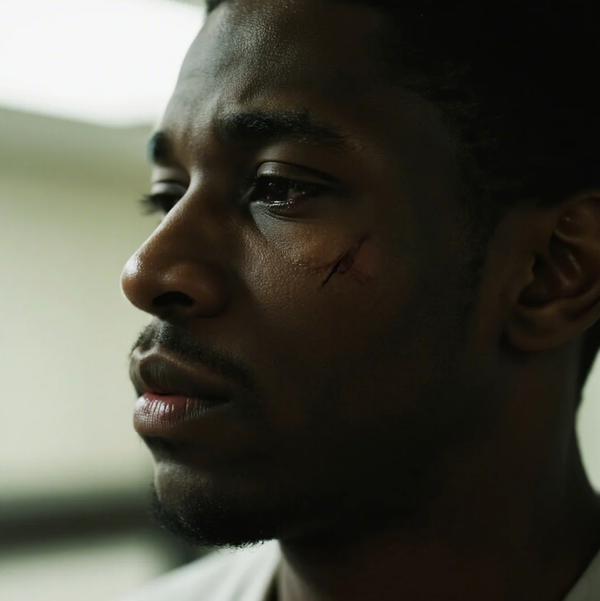Why Do I Blush So Easily? (And What You Can Do About It)
You can feel perfectly fine one moment then begin to blush. Suddenly, you may feel more exposed and socially vulnerable.

Do you find yourself blushing in everyday situations like speaking up in a group or meeting someone new?
You’re not alone. Blushing is a normal body response but, for some people, it happens more often and can feel embarrassing, especially if others tease you for it.
If you’ve ever asked yourself, “Why do I blush so easily?”, this guide is for you.
We’ll explore what causes frequent blushing, why it affects some people more than others, and practical ways to manage it both physically and emotionally.
What Is Blushing?
Blushing is when your face, neck, or even chest turns red.
It happens when tiny blood vessels under your skin get wider and allow more blood through. This gives your skin a pink or red look.
Your body does this through something called the autonomic nervous system. It's the core wiring of your body that runs things you don’t actively control, like your heartbeat, breathing, and digestion.
That means you can’t "will" yourself to stop blushing. It’s automatic.
Why Do I Blush So Easily?
Almost everyone blushes a little sometimes.
But some people feel like it happens all the time (and for no big reason).
If that’s you, here are a few reasons why it might be happening:
1. You’re Emotionally Sensitive or Self-Aware
You might blush when:
- You're asked a personal question
- Someone compliments you
- You make a small mistake
- You speak up in a group
Your mind reacts to emotional moments (even small ones) in a big way. This tells your body, “something important is happening!” and your face responds.
You’re not overreacting. You’re just tuned in.
2. You Struggle with Social Anxiety
People with social anxiety fear being judged badly by others.
Even small social moments can feel intense. If you’re always thinking:
- “Am I saying the wrong thing?”
- “Do they think I look nervous?”
- “What if I blush and they notice?”
…that worry alone can cause blushing.
This is backed up by the NHS, which lists blushing as a major symptom of social anxiety. It can create an unfortunate cycle:
anxiety → blushing → anxiety about blushing → more blushing
3. You’re Afraid of Blushing Itself
This one sounds odd, but it’s very real.
If you're scared of blushing, your body may blush more. This is called erythrophobia.
It’s a fear of going red in the face, and that fear can trigger exactly what you’re scared of.
Someone on Reddit shared this:
"I blush easily and I’ve always hated it, people usually notice and would point it out which also makes it worse."
This is a common experience, even if it being so common doesn't make it particularly more easy to deal with!
Often, the person has been teased or laughed at for turning red (even by well-meaning friends), which can fuel the feeling of being overly self-conscious.
4. It’s in Your Genes
Blushing often runs in families.
If your parents or siblings blush easily, you might too.
Also, people with fair or light skin tend to show redness more clearly. Even if someone else has the same reaction, it might just look more intense on you.
Personally, I have pretty much as fair skin as you see. I used to blush a lot throughout school and people would say "oh he's turning red!"
As a rather shy and sensitive individual, I wanted the ground to swallow me up.
I began to care less about it as a young adult (I sort of surrendered to it). And, funny enough, over time I blushed less and less. I still do sometimes but don't care anywhere near as much.
5. You Might Have Rosacea
If you blush often and it lingers, it could be a sign of rosacea.
Rosacea is a skin condition that causes:
- Long-lasting redness
- Flushed cheeks or nose
- Bumps or visible blood vessels
- Sensitivity to hot or spicy foods
It’s not dangerous. However, it can be very uncomfortable.
The American Academy of Dermatology says over 14 million people in the U.S. alone have rosacea (and many don’t even know it).
6. Your Body Reacts to Physical Triggers
Sometimes blushing isn’t about feelings. Instead, it’s about your environment.
Blushing can be triggered by:
- Alcohol
- Exercise
- Hot drinks
- Spicy foods
- Warm weather
- Certain medications
These things can all make the blood vessels close to your skin open up, even if you’re not nervous.
Why Blushing Feels So Embarrassing
You can feel perfectly fine one moment then begin to blush. Suddenly, you may feel more exposed and socially vulnerable.
It can feel like a spotlight’s on your face.
Here’s what makes blushing feel so awkward:
- It’s visible, others can see it and there judge it
- It feels out of control, and you get frustrated you can’t stop it
But guess what?
Most people won't notice the majority of the time. They're in their own heads. And those who do notice (adults, anyway) usually don’t think less of you.
In fact, a study in the Emotion journal found that people who blush are often seen as more honest and trustworthy.
It shows you care, and are a real human being!
Can You Stop Blushing?
The truth is, you may not be able to stop it completely but you can make it happen less often and feel less scary when it does.
Let’s go over some helpful steps:
1. Stop Fighting It
The more you try to “not blush,” the more it happens. It's the same with most things in life.
Trying to accept it helps. When you notice blushing, say to yourself:
“Okay, I’m blushing. It’s a body reaction. It’ll pass. If someone teases me, I can either laugh it off rather than taking myself too seriously, or I can just tell them to stop being so mean.”
This can calm your brain and stop the anxiety spiral.
2. Try Slow Breathing
When you feel blushing coming on, slow your breath.
Try this simple pattern:
- Breathe in through your nose for 4 seconds
- Hold your breath for 4 seconds
- Breathe out slowly through your mouth for 6 seconds
Repeat for 1–2 minutes.
This helps lower your heart rate and nervous energy.
3. Use Exposure to Build Confidence
Avoiding social situations makes blushing worse over time.
Instead, try facing your fear in baby steps:
- Start small: speak in a small group or order food out loud
- Move up: ask a question in class or speak in a meeting
- Keep going: give a short talk, attend an event, etc.
Your brain learns that you’re safe in small doses, even if you end up blushing.
4. Try CBT (Cognitive Behavioral Therapy)
CBT helps you change your thinking and beliefs around blushing.
Instead of “They’ll laugh at me if I blush,” you can update your belief to:
“It’s a normal body function, mine is just more sensitive. They probably don’t care and if they do, does it really matter in the grand scheme of things?”
It’s one of the most effective therapies for social anxiety and blushing.
Sites like Therapist Aid offer free tools to get started. Or, you can work with a therapist.
5. Explore Medical Help (For Serious Cases)
If blushing is hurting your work or social life, you can speak with a doctor.
They may suggest other interventions to explore like:
- Beta blockers, which may help calm physical symptoms of anxiety
- Clonidine to reduce facial flushing
Note: Every medical intervention can have side effects. Always talk to a doctor to see what’s right for you.
Real People, Real Stories
If you find it helpful, here are some first-hand stories from helpful communities:
- Reddit: r/socialanxiety – people share daily struggles with blushing and tips that helped
Final Thoughts: You’re Not Broken
Blushing easily can feel HUGELY frustrating and "unfixable." But it doesn’t mean something is wrong with you.
It means you’re sensitive, aware, and human.
Many people wish they could show more emotion. You just happen to show it naturally.
So next time you feel your cheeks getting warm, try to take a deep breath and remember:
- It’ll pass.
- Most people don’t care.
- If you do care, well, screw 'em.
You don’t have to erase your blushing. But you can live with more ease, more confidence and at least a little more kindness toward yourself.
Written by Declan Davey - Health Writer & Psychotherapist





